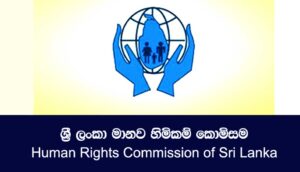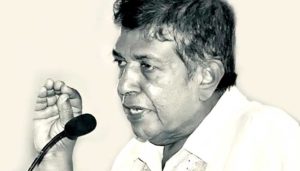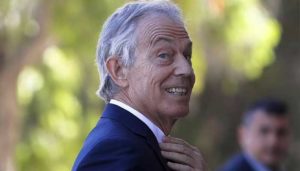We are witness today to events that are unprecedented in our postcolonial history. Hundreds of thousands of people are taking to the streets spontaneously in protest in an extraordinary demonstration of democratic fervor. The calls for change are loud, and spectacular. They are driven by anger at a small elite group —the Rajapaksas, who have built a dynastic political em- pire with their cronies and allies in and out of parliament and a supportive business elite. One of the worst spells of economic hardship that the country has experienced in the past few dec- ades has driven people to the streets, demanding that the President of the country “go home”.
But these calls for change are not just of the government in power, but of the forms of govern- ance as well. Hard questions are being asked by the protesters: questions about economic poli- cies, the functioning of the judiciary, relations between communities, and related concerns.
People want prices reduced and essential items like food, medicine, milk powder, electricity, gas and stationery, available in adequate amounts for their families; communities want the country’s stolen wealth returned and re-distributed; many want the divisive ethnic and religion based politics to end and past violations acknowledged and accounted for; the people are united in their cry for a country free of totalitarianism. The polyphony of slogans demanding economic, political social and gender justice must be heard and addressed.
The economic crisis was precipitated by the inability of the heavily indebted government to guarantee to the people essential imports, triggering the protests. Further, arbitrary decisions like the ban on the import of fertilizer badly impacted agricultural production. Shortages and exorbitant price hikes affecting food, medicines, fuel, and electricity, have induced widespread suffering. The impact is harshest on the working class, especially underclass, underprivileged, and multiply marginalized persons and communities; whose conditions have been rendered ever more precarious by the pandemic.
The origins of the present crisis are political, having been brought about by authoritarian policies of successive governments. Such authoritarian rule has been consolidated for decades through Sinhala Buddhist majoritarian mobilisations, one of the most recent one being the mandatory cremations of Muslims, after a COVID death. It is built upon the notion that powerful, rich, professional and militaristic men must lead the way through mechanisms isolated from the needs of the larger community. Such ideologies have discriminated against people on the margins and have little space for pluralism. It has resulted in heightened militarization, inequality and injustice. It has narrowed the space for collective democratic action, and instead validated a culture of patronage and centralized authority.
It is important at this juncture that touted solutions do not compound the crisis. IMF involvement is very much on the table: the neoliberal economic thought that sees the IMF as the ideal solution extends across the political spectrum. However, it is decades of neoliberal policies that have led us to this crisis in the first place. Neoliberalism promotes policy that safeguards private property rights and free markets, overriding social concerns. Globally, social services such as transportation, health and education have become spaces for racketeering and private profit, and transformed governments to be facilitators of this process. No longer is the state expected to provide services to the public and no longer do such services belong to the public. As a result, the role of the state has weakened and we have become victims of the vagaries of markets. We have witnessed the slashing of spending on social welfare.
Deregulation and privatization have become the norm. Today, we rely on the remittances of exploited migrant workers and heavy international borrowing, instead of developing production along viable lines, leading to self-sufficiency. In the event of an IMF intervention, we should keep the above in mind.
As a means of addressing the economic crisis in the short term, provisions must be made for immediate relief for the suffering people. We must demand progressive direct taxation, including a wealth tax on property and vehicles, geared towards redistribution and greater equality. We must insist on a significant reduction of the funds allocated to the defence sector and that core public services, including health, education, electricity, water and transport, are strengthened and funded by the state. Those who are landless should be given land for housing, agriculture and other economic activities.
We must broaden and concretize this democratic moment into sustained political action, pushing for structural changes in the long term. Draconian laws, including the Public Security Ordinance and the Prevention of Terrorism Act must be repealed. The country must engage in demilitarization by cutting back on military expenditure, releasing lands held by the military, and confining the military to the barracks. Devolution of power from the center to the peripheries is required. The executive presidency, together with the legislation brought about by the 20th amendment to the constitution that consolidated powers at the center must be done away with. Instead, we must nurture transparency and pluralism, through mechanisms such as tribunals, independent commissions and an independent judiciary.
As a people, we call for solidarity at this historical moment! We call for a movement of workers, unions, women’s groups, all marginalized, disenfranchised and discontented people towards a just and democratic future for us all.
SIGNED BY:
- Sumathy Sivamohan – University of Peradeniya
- Farzana Haniffa – University of Colombo
- Shamala Kumar – University of Peradeniya
- Mahendran Thiruvarangan – University of Jaffna
- Hasini Lecamwasam – University of Peradeniya
- Nicola Perera – University of Colombo
- Anushka Kahandagamage, – University of Otago
- Erandika de Silva – University of Jaffna
- Udari Abeyasinghe – University of Peradeniya
- Ahilan Kadirgamar – University of Jaffna
- Aruni Samarakoon – University Of Ruhuna
- Harshana Rambukwell – Open University of Sri Lanka
- Kaushalya Perera – University of Colombo
- Sudesh Mantillake – University of Peradeniya
- Kethakie Nagahawatte – University of Colombo
- Vasuki Rajasingam, – Jaffna
- Chulani Kodikara, – University of Edinburgh
- Maithree Wickramasinghe – University of Kelaniya
- Janaki Jayawardena- University of Colombo
- Tudor Silva – University of Peradeniya
- Gameela Samarasinghe, University of Colombo
- Pradeepa Korale Gedara – University of Peradeniya
- Rajan Hool – Jaffna
- N. Sivakaran – University of Jaffna
- Shani Anuradha – University of Peradeniya
- Yathursha Ulakentheran – Independent Researcher
- Shafiya Rafaithu – Independent Researcher
- Rajitha Ranasinghe – University of Peradeniya
- MEDICAL PROFESSIONALS IN SRI LANKA FOR SYSTEMCHANGE - October 12, 2022
- ජාතික වෘත්තික මධ්යස්ථානයේ මානව හිමිකම් ප්රකාශයක්.. - September 5, 2022
- සිසු දඩයම වහා නවත්වනු..! - August 24, 2022





